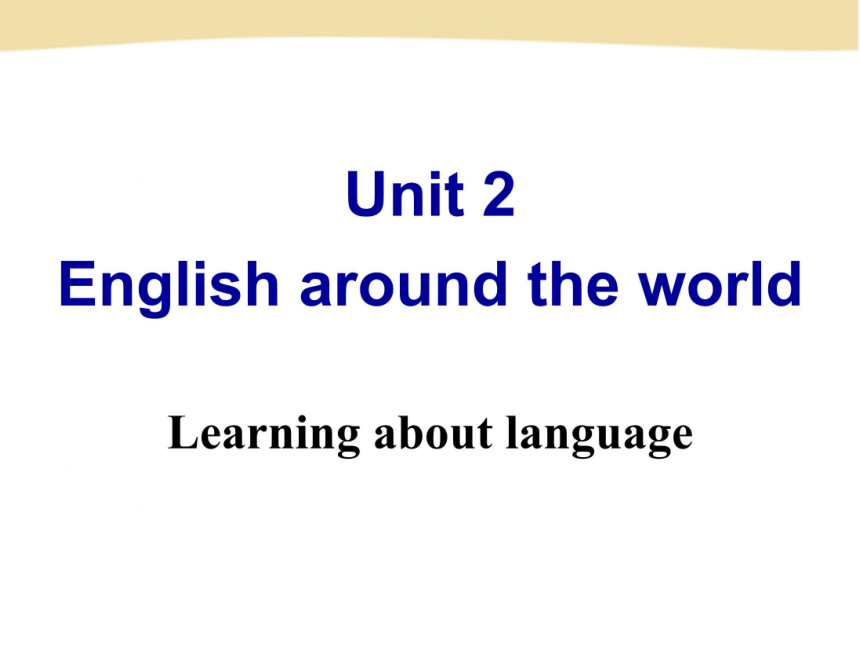
课件64张PPT。Unit 2 English around the world Learning about language1 Match the words and expressions.1. petrol 2. voyage 3. gradually 4. frequently 5. identity 6. the latter 7. actually 8. fluentA. who or what somebody or something is B. a word for gas in British English C. not sudden D. in fact E. the second of two things or people already mentioned F. often G. long trip by sea or in space H. able to speak or write a language wellDiscovering useful words and expressionsIt is not easy for a Chinese person to speak English as _____ as a _____ English speaker. One reason is that English has a large _____. It also has different usage in different English speaking countries. nativevocabularyfluentlyComplete this passage with the words from the Warming up and Reading. If you use “flat” instead of “_____”, people in America will know you have learned British English. If you use the word _____ instead of “lift” in Britain, people will know you have studied American English.apartmentelevator“Will you _____ to my flat?” asked the spider to the fly. “_____ it’s so pleasant to look down from so high. _____ the clear sky it’s possible to see Buildings _____ theatres and hotelsAdd these phrases to the rhyme so that it makes sense. such as make use of because of come up at present come up At present Because ofsuch as by the sea. So won’t you please _____ this chance to look?” The fly agreed immediately without a second thought. But as soon as she went up with a step so light that day, The spider caught and ate her and she was never seen again! Then read the rhyme aloud and mark the sense groups. make use of 1. There are so many people _____ the street. 2. They are going to have a party _____ the weekend. 4 Sometimes British and American people use different prepositions for the same idea. Choose a pair of prepositions. Then compare them. at / on past / after in / on from / thanin/onat/on3. We will leave for the airport at a quarter _____ five. 4. His brother is _____ the most famous football team in England. 5. As we know, British English is a little different _____ American English. past/afterin/onfrom/than6. Are there many children playing _____ the playground? Do you know which usage is British English and which is American? Discuss in pairs and then in class. in/oninatonafterfrompastthanoninoninonGrammarDirect and Indirect SpeechⅡRequests and Commands?1. He said: “I’ve left my pen in my room.” → He ____me that _____ pen in _____room.She said that _____be busy.2. She said: “He will be busy.”→ 复习 (把下列直接引语改为间接引语)She _____Tom _____he _____.3. She said to Tom, “Can you help me?”→toldhe had left his hishe wouldaskedif/whethercould help her1. 陈述句的间接引语—连接词用_____, 在口语中可省略。引述动词用_____,等。 例如: He said: “I’ve left my book in my room.” → He _____me that _____book in _____room. 复习规律thatsaid, toldtoldhe had left hishis2. 疑问句的间接引语。一般疑问句后连接 词用_____, 而引述选择疑问句时 只能用____ ... ...
~~ 您好,已阅读到文档的结尾了 ~~

